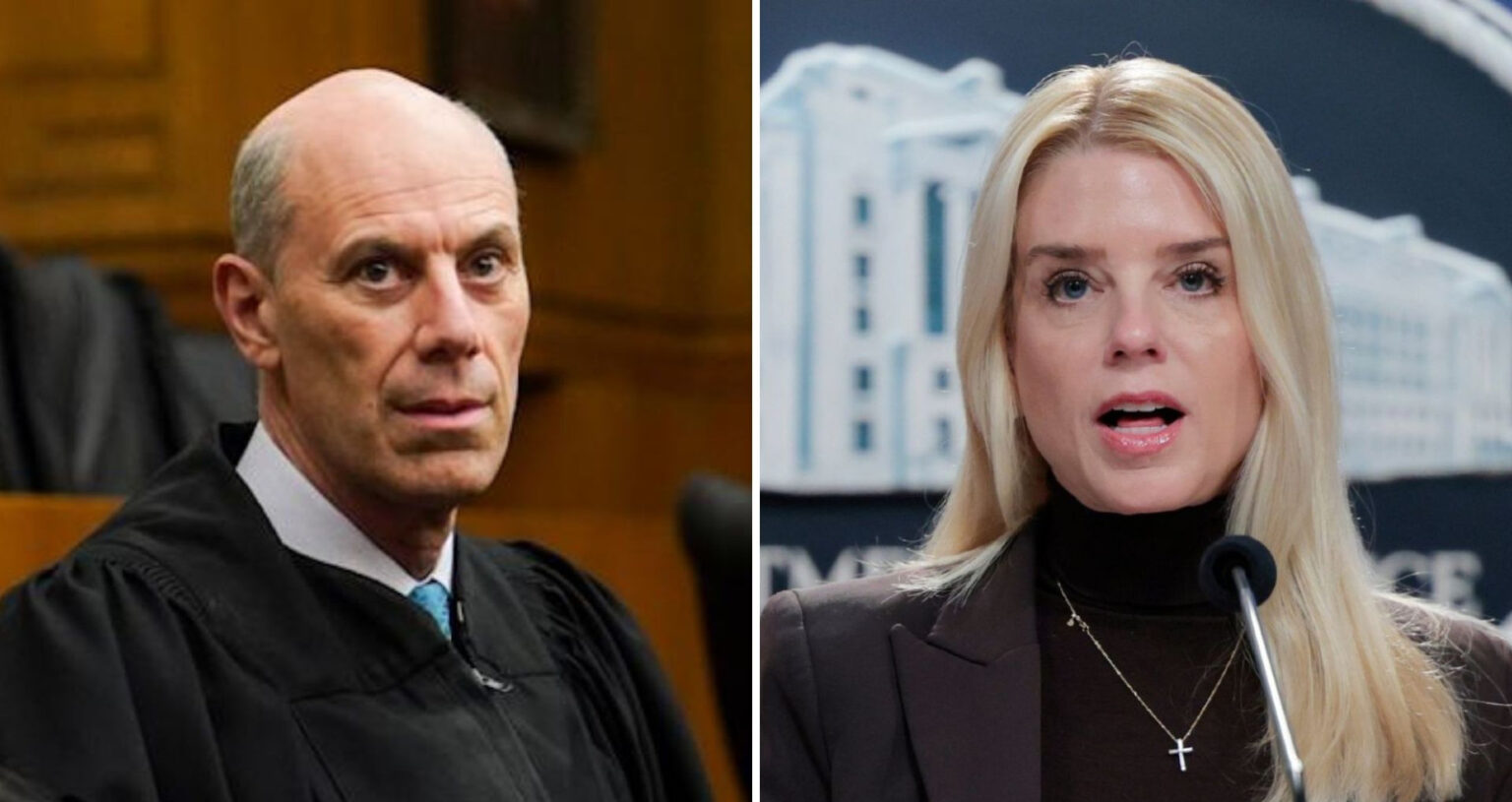The U.S. Department of Justice (DOJ) has accused U.S. District Judge James Boasberg of engaging in “digressive micromanagement” in a heated legal battle over the Trump administration’s deportation of Venezuelan nationals.
The dispute centers around deportation flights that sent suspected gang members to El Salvador over the weekend, a move that Boasberg attempted to halt with a temporary restraining order (TRO).
DOJ Pushes Back Against Judge’s Orders
In a court filing co-signed by Attorney General Pamela Bondi, Deputy Attorney General Todd Blanche, and others, the DOJ strongly objected to Boasberg’s demand for additional information.
📢 “The Court has now spent more time trying to ferret out information about the Government’s flight schedules and relations with foreign countries than it did in investigating the facts before certifying the class action in this case,” the DOJ wrote Wednesday.
The filing criticized the judge’s continued oversight, claiming that his orders have derailed the case by shifting focus away from its legal issues.
📢 “The distraction of the specific facts surrounding the movements of an airplane has derailed this case long enough and should end until the Circuit Court has had a chance to weigh in.”
Boasberg’s Demands and DOJ’s Response
On Tuesday, Boasberg ordered the DOJ to answer five key questions regarding the deportation flights, requiring responses under seal by noon Wednesday.
💼 The Judge’s Questions:
1️⃣ What time did the plane take off from U.S. soil, and from where?
2️⃣ What time did it leave U.S. airspace?
3️⃣ What time did it land, and in which foreign country (including any stops)?
4️⃣ When were individuals subject solely to the Proclamation transferred out of U.S. custody?
5️⃣ How many people on board were deported solely under the Proclamation?
In response, the Justice Department indicated that it was considering invoking the state secrets privilege to withhold portions of the requested information.
📢 “Defendants are currently evaluating whether to invoke the state secrets privilege as to portions of the information sought by this Court’s order,” the DOJ wrote.
The filing emphasized that the 21-hour turnaround period given by the court was insufficient for determining whether classified information related to U.S. foreign affairs and national security could be disclosed.
📢 “Disclosure of the information sought could implicate the affairs of United States allies and their cooperation with the United States Government in fighting terrorist organizations.”
DOJ: Judge Overstepping Executive Branch Authority
The DOJ further accused Boasberg of exceeding his authority, arguing that his continued oversight of deportation flights infringes upon the Executive Branch’s power over foreign relations and national security.
📢 “The Judicial Branch is not superior to the Executive Branch, particularly on non-legal matters involving foreign affairs and national security. The Government disagrees. The two branches are coequal, and the Court’s continued intrusions should end.”
The DOJ also noted that the Trump administration’s legal authority to deport Venezuelan nationals is based on both Congressional authorization and presidential constitutional powers.
📢 “What began as a dispute over the President’s authority to protect national security and manage foreign relations has devolved into a picayune dispute over the micromanagement of immaterial factfinding.”
Legal Battle Over Trump’s Deportation Order Escalates
The controversy stems from Boasberg’s Saturday night ruling, which issued a 14-day restraining order blocking the Trump administration’s plan to deport suspected members of the Tren de Aragua gang.
The judge’s decision came after human rights groups argued that some Venezuelan nationals with legitimate asylum claims could be wrongfully deported despite having no known gang ties.
🚨 Key Points of the Deportation Dispute:
✔ The DOJ argues that Boasberg’s restraining order was issued after two deportation flights were already in the air.
✔ A third flight took off later but did not carry any deportees under the Alien Enemies Act.
✔ White House Press Secretary Karoline Leavitt defended the administration, stating:
📢 “All of the planes that were subject to the written order took off before the order was entered in the courtroom on Saturday.”
Judge Boasberg Pushes Back
Despite the DOJ’s claims, Boasberg challenged the administration’s stance during a Tuesday hearing, arguing that his legal authority still applies even after a plane has left U.S. airspace.
📢 “I’m just asking how you think my equitable powers do not attach to a plane that has departed the U.S., even if it’s in international airspace.”
House Republicans Move to Impeach Boasberg
🔥 In response to Boasberg’s ruling, a House Republican lawmaker has introduced Articles of Impeachment against the federal judge, citing judicial overreach in blocking the Trump administration’s deportation flights.
The impeachment push further escalates tensions between the Executive and Judicial branches, as Trump allies argue that activist judges are obstructing national security measures.
Conclusion
This high-stakes legal battle between the DOJ and Judge Boasberg highlights the ongoing struggle over presidential authority, judicial oversight, and immigration policy.
🔎 Will the courts uphold Boasberg’s ruling, or will the DOJ’s argument for executive power prevail?
📢 What do you think? Should federal judges intervene in deportation cases, or does this undermine the Executive Branch’s authority? Let us know in the comments!
